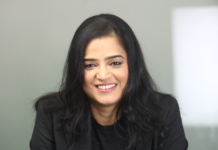It is a known fact that the consumption pattern of music and video content has undergone a massive transformation, especially in the past couple of years.
With physical sales almost extinct and live music consumption still not available, consumers have taken a liking to the streaming and OTT platforms in a big way. This has ensured a change in the distribution model for content and newer challenges for associations and societies engaged in licensing, fee collection and royalty payment of copyrighted content on behalf of rights owners.
One of the societies ensuring hassle free and transparent deals, terms and providing detailed information of the royalty collected to right owners is Phonographic Digital Limited (PDL).
Registered under the company act 1956, PDL was established in 2017 and is mainly engaged in licensing of copyrighted sound recordings and audio-visuals in mobile and digital modes and mediums. It exclusively handles licensing and fee collection on the mobile and digital platforms for regional music players and smaller music companies in Bollywood.
IPRMENTLAW spoke with Prashant Dogra, CEO, PDL about the company’s initiatives in the regional music markets, the scope for improvement and development in those markets and know his thoughts on the overall Indian music industry right now.
What’s your opinion about the Indian Music industry, as it stands today?
In my view, the Indian music industry stands at the cusp of an unprecedented growth fuelled by a much widespread availability of creative talent, than say 3-4 decades ago or earlier. Some lament, including me at times, that the genius in the talent available has diminished. But I think that music tastes have evolved world over and also in India. That we have must larger number of talents coming out, and a much deeper foray into ‘Independent music’ is a testimony to the statement above that our industry stands at the cusp of unprecedented growth.
What’s your view of the regional music Industry? And how is PDL working in that space to explore and grow it?
Regional music industry had historically been standing out in its own right to glory, despite the golden age of Bollywood. There has been a time, not so far back in the past, where regional music has been overshadowed by the so-called mono-culture, and hence the hegemony of Hindi Music. And therefore some subscribe to the view that regional music comes a distant second and on top of that people add the layer of “market attractiveness”
My view is quite contrary to this and I am very upbeat about the regional music industry. For example, Punjabi independent music has created its own space and has powered ahead. If you see YouTube, which is completely a pull environment for many languages and non-mainstream genres – you will realize that the consumer consumption is robust for good regional music across genres
The focus has to be on the programming innovations that the platforms can do to enable reaching out of all genres to all waiting consumers. And how to expand the consumption from the English-literate’s and digital literate’s prerogative; and to enable the people outside that small population to seamlessly listen to the music they all prefer.
What steps has PDL taken towards improving the offtake of regional music?
PDL has been working on creating awareness about regional artists, and programming of content around artists and events relevant to each region. It’s a discovery exercise that both music labels and also platforms have to walk together. PDL is attempting to be the revitalizing catalyst to jumpstart that space
If one was to ask the ethos of PDL, how would you put that across?
PDL believes in providing maximum power to the artists and the music labels that provide the creative outlet to the artists; and also working closely with the Platforms to enable discovery of good regional music to consumers who are already consuming it in a good “pull environment”. All other entities in the value chain have to be just the background enablers, with limited power play. To sustain creativity, we have to enable maximum boost to the artists and their immediate enablers, if any.
As a collective body, what legal challenges does PDL face?
As a collective body, PDL needs to keep visibility far deep on either side of the value chain – both at the platform side and with the member music labels and their sub-labels. We need to be ever vigilant of the developments in the industry as also vigilant about the probable disputes that may arise.
Keeping visibility and checks onto value chain is probably more important than the legal challenges, which will come if we are not vigilant enough. We do have templated methods to keep our checks so that legal hurdles are minimized.
Any policy level changes you would like to see in India?
More than policy level changes, PDL will want the ecosystem to give the rightful place under the sun for all the regional content. Today, the issue of mono culture that I alluded to earlier is a real threat, and the regional music gets reduced visibility and attention
That is solvable by diligent work across the value chain. And if any policy can help support the small regional outfits, they will always be welcome moves to sustain the creativity in all parts of the country


















